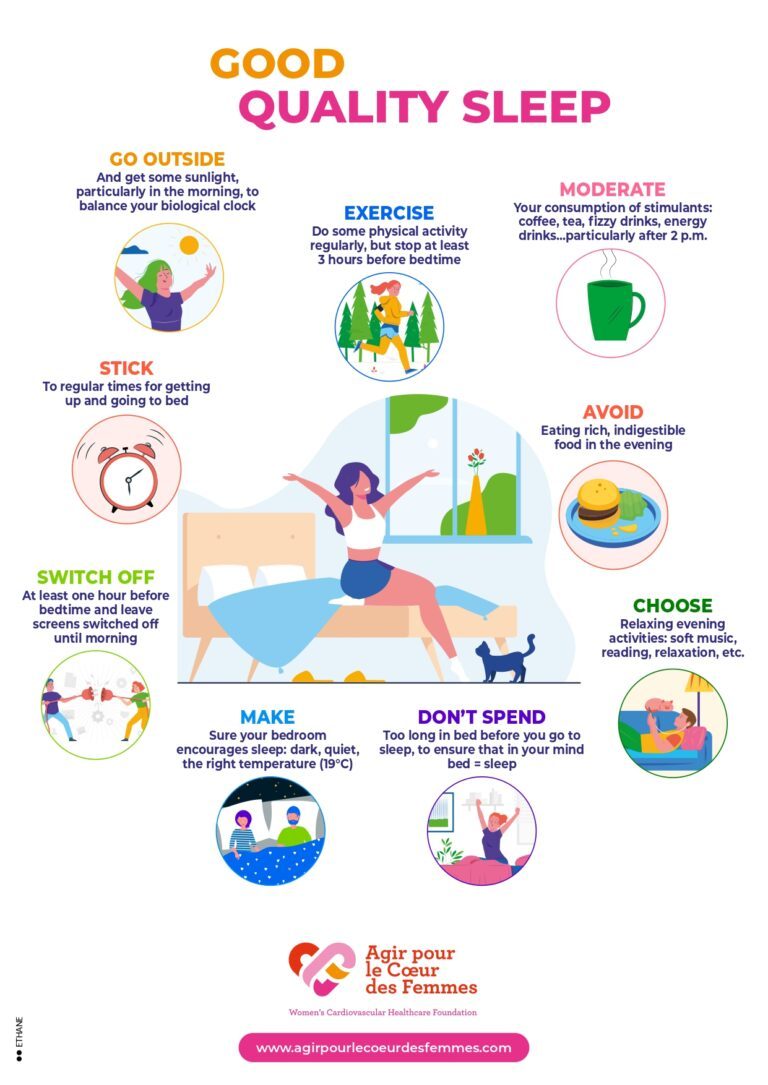Better sleep for a better life: the secret to restful sleep
All too often neglected, sleep is essential, at any age and whatever your lifestyle. Sleeping well can play a fundamental part of your physical, mental, social and cognitive balance. Discover the practical benefits of sleep and the simple habits you can adopt to improve your sleep quality.
Sleep broken down in a few figures
In 50 years, we have lost an hour and a half of sleep per night in France: today, we sleep an average of 7 hours per night during the week and 7.5 hours on the weekend*. Although this is in line with the recommended amount of sleep for adults, needs vary according to age and are not always met. It is estimated, as such, that over 30% of children and 70% of teenagers do not get enough sleep*.
Here is what experts recommend regarding the amount of hours of sleep for different age groups **:
- Newborns (0-3 months old): 14 to 17 hours
- Infants (4-11 months old): 12 to 15 hours
- Young children (1-2 years old): 11 to 14 hours
- Children (3-5 years old): 10 to 13 hours
- Children (6-13 years old): 9 to 11 hours
- Teenagers (14-17 years old): 8 to 10 hours
- Adults (18-64 years old): 7 to 9 hours
- Elderly people (65+ years old): 7 to 8 hours.
However, it’s important to bear in mind that sleep requirements vary from person to person: some adults feel perfectly rested with 6 hours of sleep, while others need 9 hours to feel ready for the day. Naps can also be beneficial, especially if they are short (maximum 15 to 30 minutes) and take place at a strategic time of the day: between 1 p.m. and 3 p.m.
Scientifically recognised benefits of sleep
Sleep plays an essential role in many biological functions, and it is then that the body and brain regenerate: tissues are repaired, cells renewed, muscles relaxed and the toxins of the day eliminated.
Regarding the benefits for your mind, quality sleep promotes good cognitive functioning by improving memory, concentration, creativity and decision-making. It also helps regulate your mood and better manage your stress and emotions, while reducing the risk of disorders such as anxiety and depression.
In terms of physical health, sleep strengthens the immune system by stimulating the production of cytokines – proteins that help fight infection. It is involved in hormone regulation, particularly those linked to stress (cortisol), growth and appetite (ghrelin, leptin). It helps you maintain a stable weight by reducing the disruption of your hunger signals, which often lead to snacking.
Furthermore, a good night’s sleep can help prevent many illnesses, including high blood pressure, diabetes, obesity, cardiovascular diseases and some neurodegenerative diseases such as Alzheimer’s and Parkinson’s.
So getting a good night’s sleep is vital to our health, our performance and our everyday well-being.
How to sleep well: Key tips, illustrated

To reap the full benefits of restful sleep, here are a few simple habits to adopt on a daily basis:
- Stick to regular hours: go to bed and get up at set times, even on the weekend.
- Exposure to natural light exposure to natural light, particularly in the morning, can help regulate your biological clock.
- Avoid stimulants: refrain from drinking coffee, tea and energy drinks after 2 p.m.
- Regular physical activity: exercise, but avoid doing too much of it in the evening so as not to overstimulate your body and push back the time you usually fall asleep.
- Keep an eye on dinner: avoid foods that are too fatty or difficult to digest, such as fried foods, fatty meats, sauces, spicy dishes, rich cheeses and very sweet desserts. If you feel a little hungry before bed, opt for a light snack such as plain yoghurt.
- Creating a sleep-inducing environment: keep your bedroom dark, quiet and at a temperature of 18 to 20°C.
- Avoid screens before bedtime: adjust your evening routine to allow for some screen-free time (phone, TV) at least one hour before bed. Blue light can disrupt the production of melatonin (the sleep hormone).
- Do something soothing: read, listen to soft music, meditate or breathe deeply to calm the mind and reduce the stress accumulated throughout the day.
Getting a good night’s sleep helps maintain your health, promote your overall well-being and improve your quality of life over the long term. So tonight, turn off your screens, take a deep breath… and let yourself fall into the arms of Morpheus.
Sources :
*”Feuille de route interministérielle en faveur d’un sommeil de qualité 2025-2026″, Ministry of Labour, Health, Solidarity and Families, 2025
**Mieux dormir pour mieux apprendre”, Scientific Council for National Education (CSEN), Ministry of National Education, Youth and Sports, March 2022
